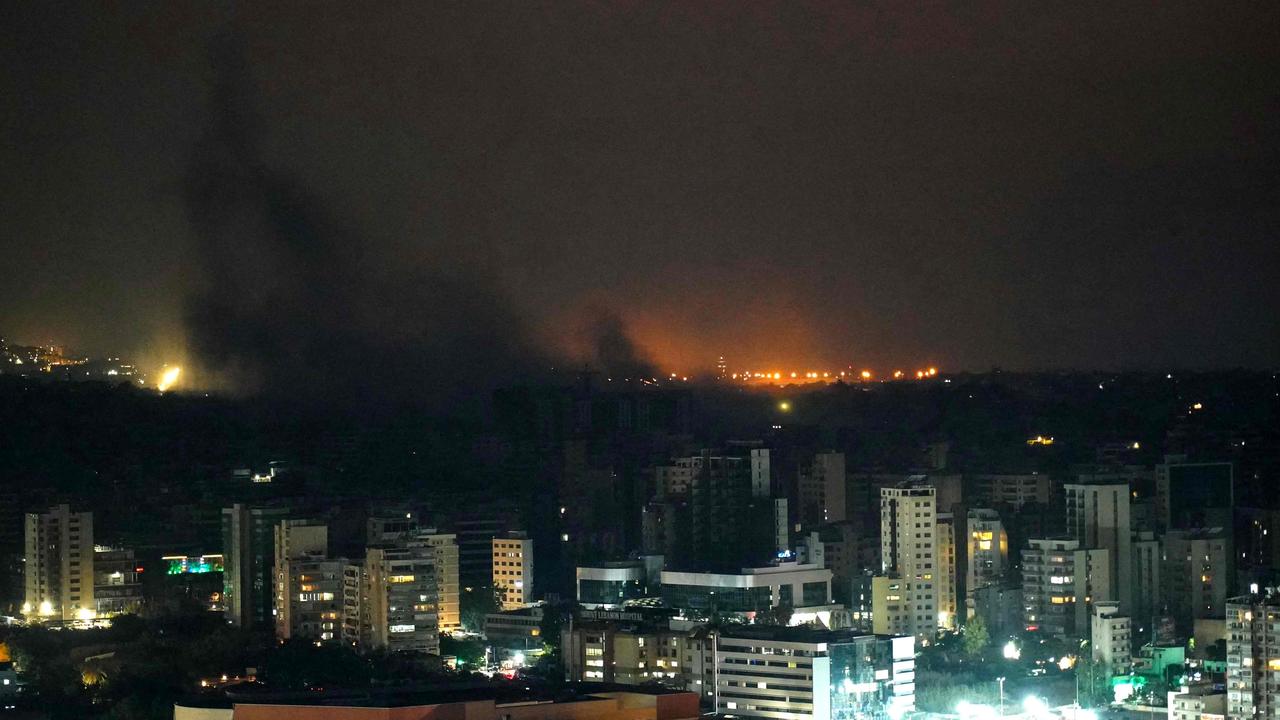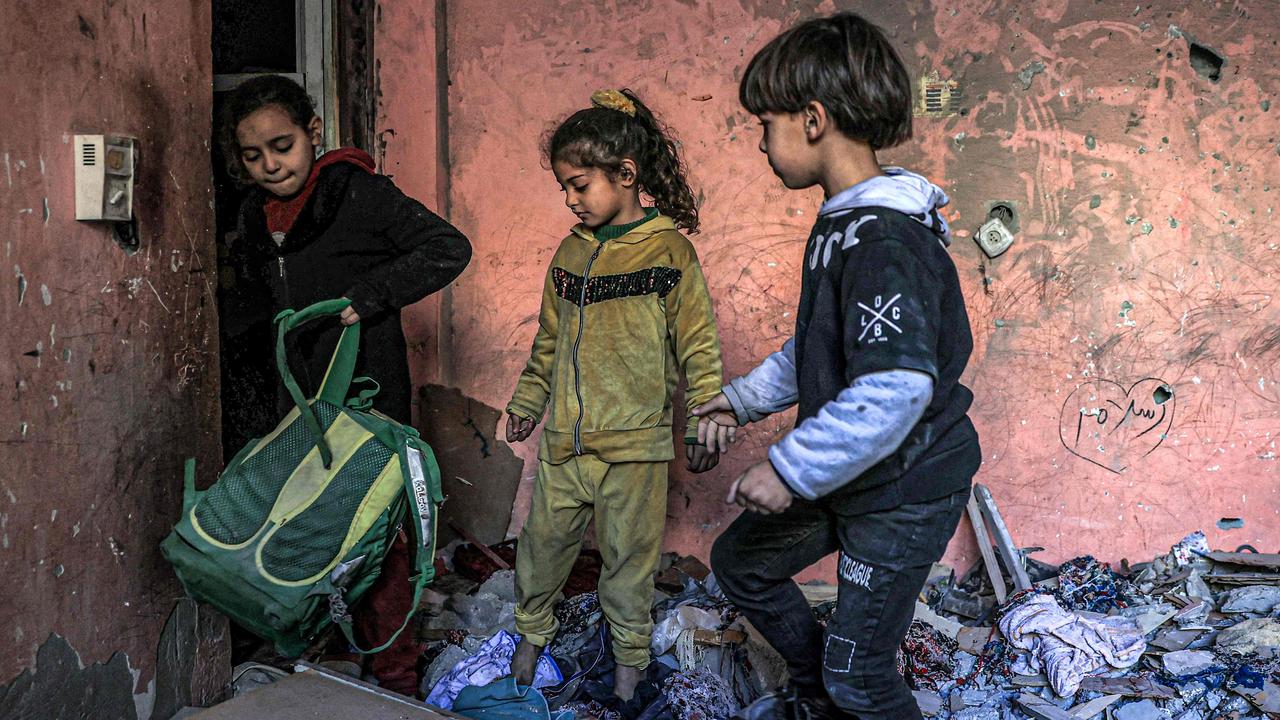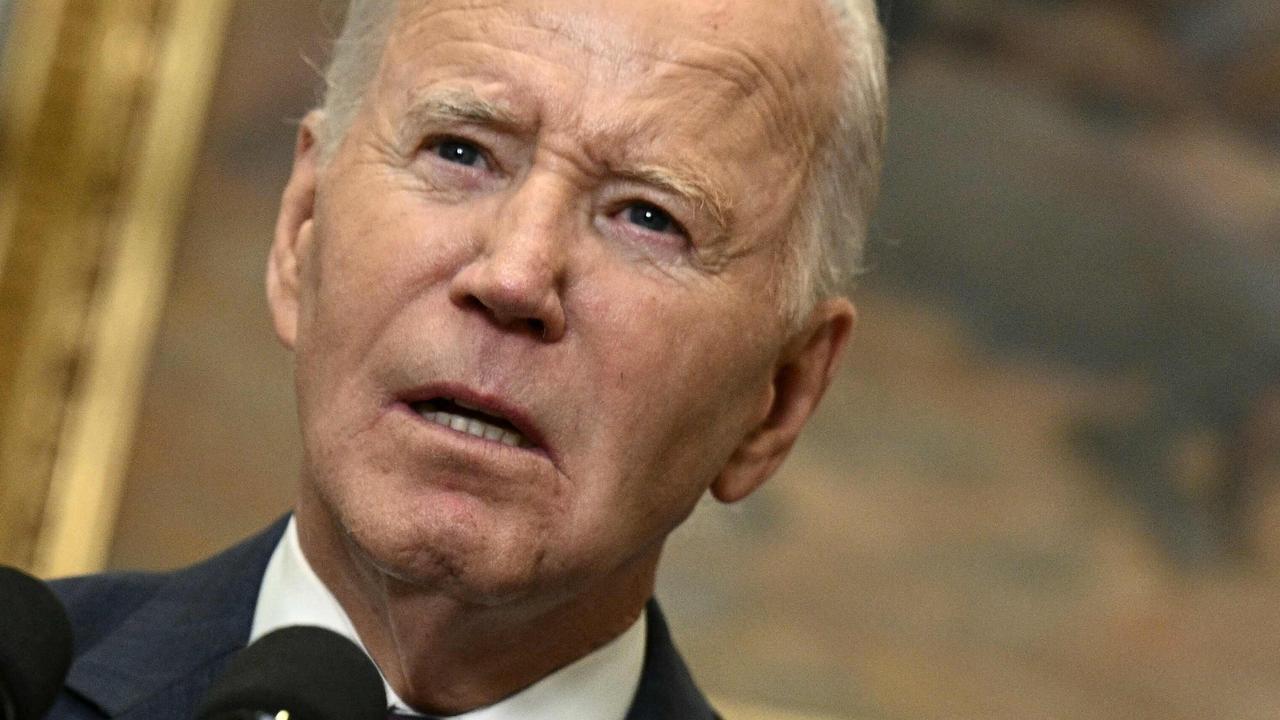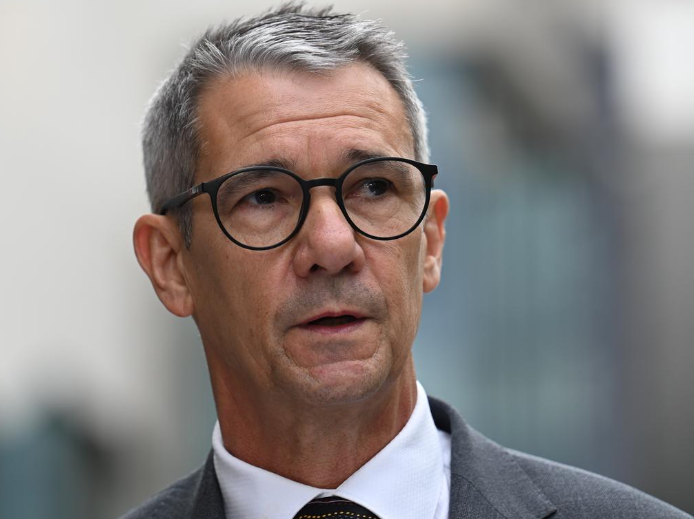“They will not understand what happened and how it happened,” Mr Gallant told Israeli soldiers today, in remarks posted on social media.
Israel has been mulling over its response to Iran for more than a week since its arch-enemy, and chief backer of Hezbollah, launched missiles towards it last Tuesday.
Much of the speculation about Israel’s response has focused on whether or not it will strike Iran’s nuclear infrastructure. The former Israeli prime minister Naftali Bennett, a strident right-wing nationalist, is among those supporting that idea. But the United States has been urging Israel, both privately and publicly, to refrain from doing anything quite so drastic.
Meanwhile a doctor who worked in the Gaza Strip earlier this year has revealed the full scale of the horrors its population is enduring. In co-operation with The New York Times, Dr Feroze Sidhwa surveyed fellow medical workers, with a particular focus on what they had witnessed in child patients.
The results make for harrowing reading.
Read on for the latest updates from the conflict in the Middle East.

Smoke continues to billow over the Lebanese capital, Beirut. Picture: Etienne Torbey/AFP
A trauma surgeon who worked at a hospital in the Gaza Strip for two weeks earlier this year has written a harrowing piece for The New York Times, describing the horrors he witnessed.
“I’ve seen violence and worked in conflict zones,” said Dr Feroze Sidhwa, who worked at the European Hospital in Khan Younis.
“But of the many things that stood out about working in a hospital in Gaza, one got to me: nearly every day I was there, I saw a new young child who had been shot in the head or the chest, virtually all of whom went on to die. Thirteen in total.
“At the time, I assumed this had to be the work of a particularly sadistic soldier located nearby. But after returning home, I met an emergency medicine physician who had worked in a different hospital in Gaza two months before me.
“‘I couldn’t believe the number of kids I saw shot in the head,’” I told him. To my surprise, he responded: ‘Yeah, me, too. Every single day.’”

Children search through the rubble of a building in Rafah, which had been largely destroyed by Israeli bombardment. Picture: Said Khatib/AFP
Dr Sidhwa decided to survey as many fellow medical workers as he could to glean what they saw in Gaza. With The Times’ help, he found 65 such workers.
Two-thirds of the cohort surveyed said they had seen “multiple cases of pre-teen children who had been shot in the head or chest”.
“One night in the emergency department, over the course of four hours, I saw six children between the ages of 5 and 12, all with single gunshot wounds to the skull,” said Dr Mohamad Rassoul Abu-Nuwar said.
“I saw a child who had been shot in the jaw. No other part of his body was affected,” said paramedic Rania Afaneh.
“He was fully awake and aware of what was going on. He stared at me while he choked on his own blood as I tried to suction the blood out with a broken suction unit.”
“I saw many children. In my experience the gunshot wound was often to the head,” said Dr Ndal Farah, an anaesthesiologist.
“Many had non-curable, permanent brain damage. It was almost a daily occurrence to have children arrive at the hospital with gunshot wounds to the head.”
The survey yielded other disturbing revelations. For example, 52 of the 65 medical workers said they had observed children in extreme psychological distress, including some “who were suicidal or said they wished they had died”.
“One four-year-old girl with major burns to her body was completely dissociated,” recalled Dr Mimi Syed.
“She was staring out into space, humming a lullabye to herself. Not crying, but shaking and in utter shock.”
“I saw children who had witnessed many family members be killed in front of them. They all expressed the wish to be dead and join their families. I saw pre-teen and teenage children who had evidence of self-harm, such as cutting on their forearms,” said nurse Abeerah Muhammad.
“Many said that they wished the next bomb would just hit them to put an end to their torture,” said Dr Mark Perlmutter.
About a third of the respondents had seen babies die from dehydration, starvation or infections, caused by their malnourished mothers’ inability to breastfeed them and the lack of clean water in Gaza.
And 64 of the 65 workers said “even the most basic medical necessities”, like soap or gloves, were “usually unavailable” during their time in the Strip.
‘Lethal, precise’: Strike against Iran looms
Israel is still mulling over its response to the missiles launched against it by Iran last week. We’ve had reports in recent days that Prime Minister Benjamin Netanyahu was waiting for a phone call with American President Joe Biden, as well as approval from Israel’s cabinet.
That phone call between Mr Biden and Mr Netanyahu has now happened, as you can read about in another post below.
In any case, there will be a response of some sort, as foreshadowed today by Israel’s Defence Minister, Yoav Gallant.
“Our attack will be lethal, precise and above all surprising,” Mr Gallant told Israeli soldiers, during remarks posted in a social media video.
“They will not understand what happened and how it happened.”
Much of the speculation about Israel’s response has focused on whether or not it will strike Iran’s nuclear infrastructure. The former Israeli prime minister Naftali Bennett, a strident right-wing nationalist, is among those supporting that idea.
But the United States has been urging Israel, both privately and publicly, to refrain from doing anything quite so drastic.
Biden finally speaks to Netanyahu
US President Joe Biden has, perhaps belatedly, spoken to Israeli Prime Minister Benjamin Netanyahu, who had been pushing for a phone call for days.
The White House released the following readout of their call today.
“President Biden spoke this morning with Prime Minister Netanyahu of Israel. Vice President Harris joined the call,” it said.
(Ms Harris is the Democratic nominee for president, and will replace Mr Biden in January if she wins the upcoming election. Should she lose, his replacement will be Donald Trump. So, one way or another, the febrile situation in the Middle East will no longer be Mr Biden’s responsibility come January 21.)
“The President affirmed his iron-clad commitment to Israel’s security. He condemned unequivocally Iran’s ballistic missile attack against Israel on October 1,” the White House readout continued.
“On Lebanon, the President emphasised the need for a diplomatic arrangement to safely return both Lebanese and Israeli civilians to their homes on both sides of the Blue Line.
“The President affirmed Israel’s right to protect its citizens from Hezbollah, which has fired thousands of missiles and rockets into Israel over the past year alone, while emphasising the need to minimise harm to civilians, in particular in the densely populated areas of Beirut.
“On Gaza, the leaders discussed the urgent need to renew diplomacy to release the hostages held by Hamas. The President also discussed the humanitarian situation in Gaza and the imperative to restore access to the north, including by reinvigorating the corridor from Jordan immediately.
“They agreed to remain in close contact over the coming days both directly and through their national security teams.”

US President Joe Biden. Picture: Brendan Smialowski/AFP
Top Hezbollah figure killed in Syria
The Israeli military today said its forces had killed a top Hezbollah figure in Syria.
Israel’s air force “struck and eliminated Adham Jahout, a terrorist in Hezbollah’s ‘Golan Terrorist Network’, Hezbollah’s terror cell in Syria,” the IDF said in a statement.
It described Jahout as an intermediary who “relayed information from Syrian regime sources to the Hezbollah”.
The army said the air raid struck in the area of Quneitra in southwestern Syria, near the Israel-annexed Golan Heights.
Israeli authorities rarely comment on individual strikes in Syria, but have repeatedly said they will not allow arch-enemy Iran to expand its presence there.

Leave a Reply